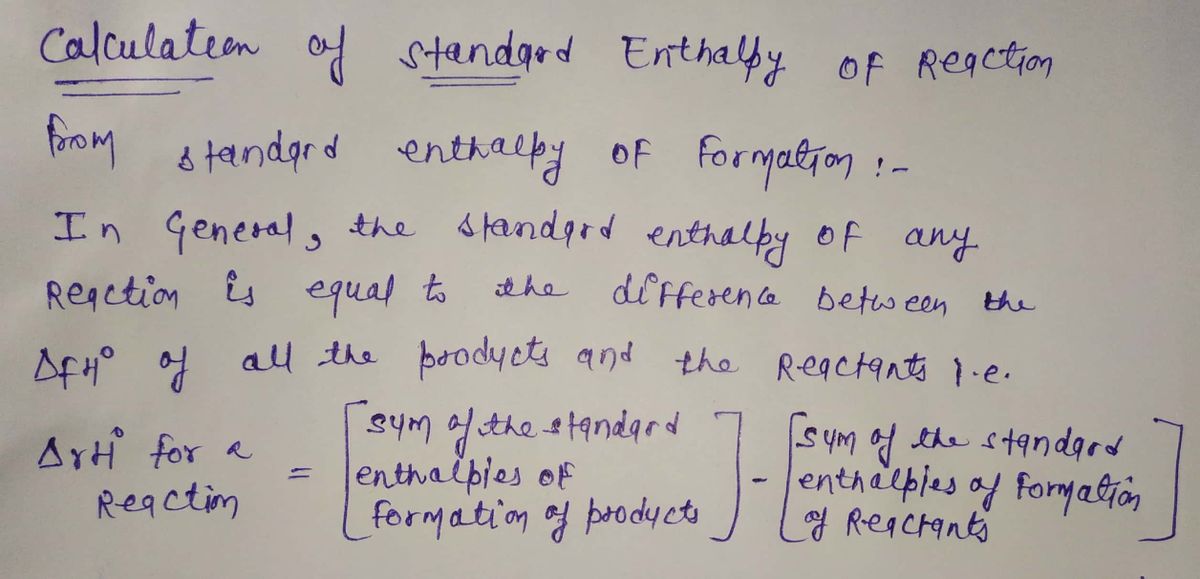Question 26 of 35 Submit Using the provided table, determine the enthalpy for the reaction 2 NH3 (g) + 3 N20 (g)→ 4 N2 (g) + 3 H¿O (I) Substance AH¡ (kJ/mol) NH3 (g) -46.2 N20 (g) 81.6 kJ/mol 1 2 3 4 C 7 +/- x 10 0 Tap here or pull up for additional resources LO 00
Question 26 of 35 Submit Using the provided table, determine the enthalpy for the reaction 2 NH3 (g) + 3 N20 (g)→ 4 N2 (g) + 3 H¿O (I) Substance AH¡ (kJ/mol) NH3 (g) -46.2 N20 (g) 81.6 kJ/mol 1 2 3 4 C 7 +/- x 10 0 Tap here or pull up for additional resources LO 00
Chemistry
10th Edition
ISBN:9781305957404
Author:Steven S. Zumdahl, Susan A. Zumdahl, Donald J. DeCoste
Publisher:Steven S. Zumdahl, Susan A. Zumdahl, Donald J. DeCoste
Chapter1: Chemical Foundations
Section: Chapter Questions
Problem 1RQ: Define and explain the differences between the following terms. a. law and theory b. theory and...
Related questions
Question
![**Question 26 of 35**
**Enthalpy Determination Using a Provided Table**
**Objective:**
Using the provided table, determine the enthalpy for the reaction:
\[ 2 \, \text{NH}_3 (g) + 3 \, \text{N}_2\text{O} (g) \rightarrow 4 \, \text{N}_2 (g) + 3 \, \text{H}_2\text{O} (l) \]
**Data Table:**
| Substance | \( \Delta H_f^\circ \) (kJ/mol) |
|-----------|------------------------|
| NH\(_3\) (g) | -46.2 |
| N\(_2\)O (g) | 81.6 |
| N\(_2\) (g) | 0 |
| H\(_2\)O (l) | -285.8 |
**Instructions:**
- Review the data table showing the standard enthalpy of formation (\( \Delta H_f^\circ \)) for each substance involved in the reaction.
- Calculate the overall reaction enthalpy (\( \Delta H^\circ_{reaction} \)) using the formula:
\[ \Delta H^\circ_{reaction} = \sum \Delta H_f^\circ \, (\text{products}) - \sum \Delta H_f^\circ \, (\text{reactants}) \]
**Note:**
Use the calculator below for any necessary calculations.
**Additional Resources:**
Tap here or pull up for additional resources.
---
The table includes essential thermodynamic values, needed to calculate the reaction enthalpy, which is crucial for understanding the energy changes in chemical processes.](/v2/_next/image?url=https%3A%2F%2Fcontent.bartleby.com%2Fqna-images%2Fquestion%2Fceafadd1-9c75-4be0-aae5-882235578510%2F0b739ef2-a446-4008-9dca-b16115441e54%2Fecyuuo4_processed.png&w=3840&q=75)
Transcribed Image Text:**Question 26 of 35**
**Enthalpy Determination Using a Provided Table**
**Objective:**
Using the provided table, determine the enthalpy for the reaction:
\[ 2 \, \text{NH}_3 (g) + 3 \, \text{N}_2\text{O} (g) \rightarrow 4 \, \text{N}_2 (g) + 3 \, \text{H}_2\text{O} (l) \]
**Data Table:**
| Substance | \( \Delta H_f^\circ \) (kJ/mol) |
|-----------|------------------------|
| NH\(_3\) (g) | -46.2 |
| N\(_2\)O (g) | 81.6 |
| N\(_2\) (g) | 0 |
| H\(_2\)O (l) | -285.8 |
**Instructions:**
- Review the data table showing the standard enthalpy of formation (\( \Delta H_f^\circ \)) for each substance involved in the reaction.
- Calculate the overall reaction enthalpy (\( \Delta H^\circ_{reaction} \)) using the formula:
\[ \Delta H^\circ_{reaction} = \sum \Delta H_f^\circ \, (\text{products}) - \sum \Delta H_f^\circ \, (\text{reactants}) \]
**Note:**
Use the calculator below for any necessary calculations.
**Additional Resources:**
Tap here or pull up for additional resources.
---
The table includes essential thermodynamic values, needed to calculate the reaction enthalpy, which is crucial for understanding the energy changes in chemical processes.

Transcribed Image Text:### Thermochemical Data on Selected Substances
The table below provides the standard enthalpy of formation (\( \Delta H_f^\circ \)) for various substances, measured in kilojoules per mole (kJ/mol). This data is essential for understanding the energy changes involved in chemical reactions.
| Substance | \( \Delta H_f^\circ \) (kJ/mol) |
|-----------|--------------------------|
| NH\(_3\) (g) | -46.2 |
| N\(_2\)O (g) | 81.6 |
| N\(_2\) (g) | 0 |
| H\(_2\)O (l) | -285.8 |
This information is useful for calculating reaction enthalpies using Hess's Law and can be used to determine whether reactions are endothermic or exothermic.
**Interactive Calculator:**
Below the table, there is an on-screen calculator interface designed for inputting values and performing quick calculations related to enthalpy changes. Users can input values using the numeric keypad and utilize basic operations to assist in thermochemical calculations.
Expert Solution
Step 1

Step by step
Solved in 2 steps with 2 images

Knowledge Booster
Learn more about
Need a deep-dive on the concept behind this application? Look no further. Learn more about this topic, chemistry and related others by exploring similar questions and additional content below.Recommended textbooks for you

Chemistry
Chemistry
ISBN:
9781305957404
Author:
Steven S. Zumdahl, Susan A. Zumdahl, Donald J. DeCoste
Publisher:
Cengage Learning

Chemistry
Chemistry
ISBN:
9781259911156
Author:
Raymond Chang Dr., Jason Overby Professor
Publisher:
McGraw-Hill Education

Principles of Instrumental Analysis
Chemistry
ISBN:
9781305577213
Author:
Douglas A. Skoog, F. James Holler, Stanley R. Crouch
Publisher:
Cengage Learning

Chemistry
Chemistry
ISBN:
9781305957404
Author:
Steven S. Zumdahl, Susan A. Zumdahl, Donald J. DeCoste
Publisher:
Cengage Learning

Chemistry
Chemistry
ISBN:
9781259911156
Author:
Raymond Chang Dr., Jason Overby Professor
Publisher:
McGraw-Hill Education

Principles of Instrumental Analysis
Chemistry
ISBN:
9781305577213
Author:
Douglas A. Skoog, F. James Holler, Stanley R. Crouch
Publisher:
Cengage Learning

Organic Chemistry
Chemistry
ISBN:
9780078021558
Author:
Janice Gorzynski Smith Dr.
Publisher:
McGraw-Hill Education

Chemistry: Principles and Reactions
Chemistry
ISBN:
9781305079373
Author:
William L. Masterton, Cecile N. Hurley
Publisher:
Cengage Learning

Elementary Principles of Chemical Processes, Bind…
Chemistry
ISBN:
9781118431221
Author:
Richard M. Felder, Ronald W. Rousseau, Lisa G. Bullard
Publisher:
WILEY